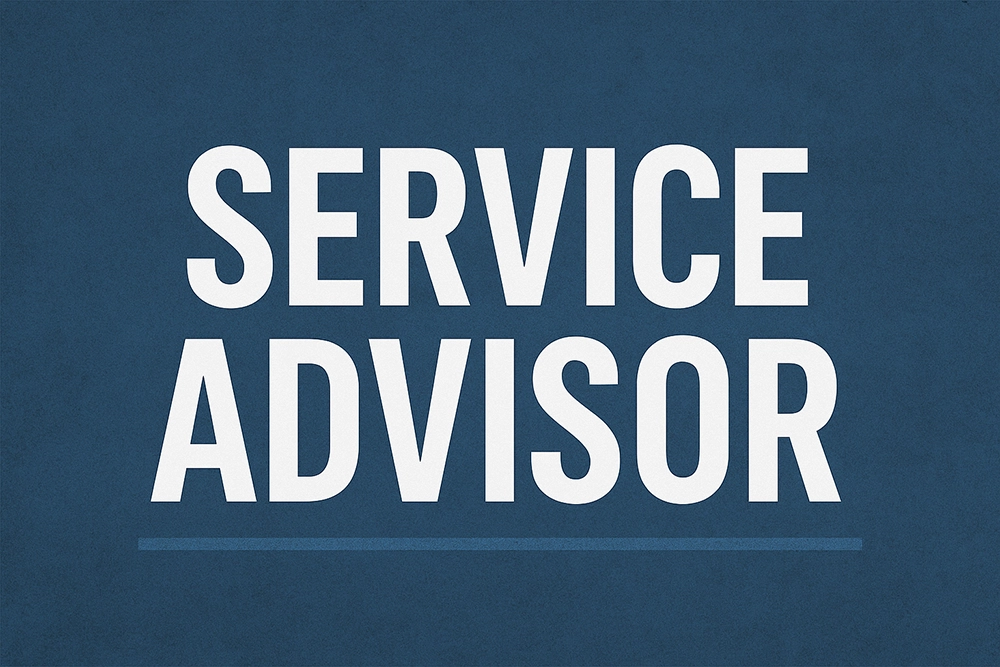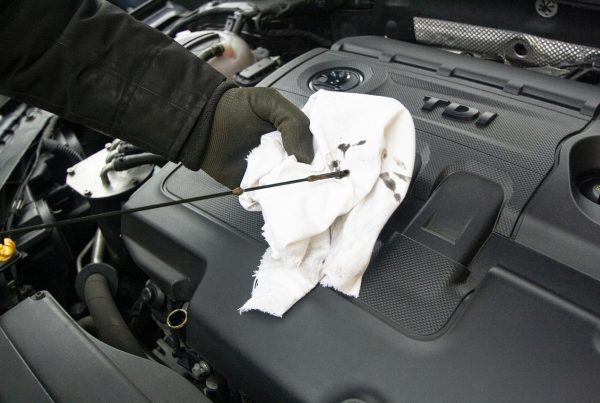In the automotive service industry, service advisors serve as the critical link between customers and technicians, playing an essential role in ensuring customer satisfaction while driving revenue growth. Automotive service advisors act as the liaison between customers and auto technicians, handling tasks such as scheduling service appointments and managing quotes, typically working for car dealerships or automotive repair shops. Understanding what a service advisor does is crucial for anyone considering this career path or seeking to optimize their service department’s performance.
The Service Advisor: Your Customer’s First Point of Contact
Service advisors are responsible for delivering exceptional customer service, fostering trust, and ensuring that vehicles are serviced efficiently and effectively. They serve as the face of the service department, greeting customers with professionalism and guiding them through the entire service experience from initial consultation to final vehicle delivery.
Automotive service advisors greet customers, listen to their description of the problems or service needed, determine the type of service required and prepare repair orders. While the service advisors don’t actually complete the repairs, they do help identify what is wrong and what needs to be done, offer pricing, and schedule the repair time slots.
Core Responsibilities of Service Advisors
Customer Consultation and Needs Assessment
Service advisors begin each interaction by actively listening to customers describe their vehicle’s symptoms or service needs. They ask probing questions to understand the full scope of issues, helping customers articulate problems they may not be able to express clearly. This consultation process requires both technical knowledge and strong communication skills to translate customer concerns into actionable service requests.
They help in your auto shop by looking after numerous tasks. From managing customer interactions and scheduling appointments to providing service recommendations and ensuring customer satisfaction. They are involved right from the time customers are onboarded, all through the repair process.
Repair Order Creation and Documentation
Once service needs are identified, service advisors prepare detailed repair orders that communicate customer concerns and requested services to technicians. These documents serve as the foundation for all subsequent work, requiring accuracy and completeness to ensure proper service delivery and billing.
Service advisors must document customer contact information, vehicle details, mileage, requested services, and any special instructions or concerns. This documentation becomes part of the customer’s permanent service history, supporting future service recommendations and warranty considerations.
Cost Estimation and Pricing Communication
If a vehicle requires additional repairs not covered in the original order, they estimate the additional cost and telephone customers with updates. Service advisors must be skilled in explaining repair costs, labor charges, and parts pricing in terms customers can understand and accept.
This responsibility requires knowledge of labor time guides, parts pricing, and shop rates to provide accurate estimates. Service advisors must also be prepared to justify costs and explain the value of recommended services to help customers make informed decisions.
Appointment Scheduling and Workflow Management
And they are interacting with all customers coming in throughout the day. It can be a demanding role and they often have to juggle multiple tasks. They have to answer phones, manage appointments, provide estimates, and talk to in-shop customers. They are also on their feet most of the day.
Service advisors coordinate appointment scheduling to optimize shop efficiency while accommodating customer preferences. This involves balancing technician availability, parts delivery schedules, and customer convenience to maximize productivity and satisfaction.
Service Advisor Roles in Different Environments
Car Dealership Service Departments
In dealership settings, service advisors work within larger organizational structures that include multiple departments and manufacturer requirements. They handle warranty claims, coordinate with parts departments, and ensure compliance with factory service procedures and standards.
Dealership service advisors often specialize in specific vehicle brands, developing expertise in manufacturer-specific systems, recalls, and service campaigns. They work closely with factory representatives and participate in ongoing training programs to stay current with evolving technology and service procedures.
Quick Lube and Express Service Operations
The responsibilities of a Quick Lane Service Advisor include greeting customers, listening to their needs, and scheduling appointments as needed. In quick lube environments, service advisors focus on high-volume, standardized services with emphasis on speed and efficiency.
Quick lube service advisors typically handle faster-paced interactions, processing multiple customers per hour while maintaining service quality. They specialize in routine maintenance services like oil changes, filter replacements, and basic inspections, often completing customer interactions in 15-30 minutes.
Essential Skills and Qualifications
Technical Knowledge
Skills required for a service advisor include automotive knowledge, strong communication and listening skills, time management. Service advisors need comprehensive understanding of automotive systems to communicate effectively with both customers and technicians.
While they don’t perform repairs themselves, service advisors must understand how various vehicle systems work, common problems, and typical repair procedures. This knowledge enables them to ask appropriate diagnostic questions and explain repair recommendations convincingly.
Communication and Interpersonal Skills
Service advisors must excel at both verbal and written communication, adapting their style to match different customer personalities and technical understanding levels. They serve as interpreters, translating complex technical information into understandable explanations for customers.
Active listening skills are crucial for accurately identifying customer concerns and building trust. Service advisors must demonstrate empathy while maintaining professional boundaries and managing customer expectations realistically.
Sales and Persuasion Abilities
Effective service advisors combine technical knowledge with sales skills to present service recommendations persuasively. They must identify additional service needs through vehicle inspections and maintenance schedules, presenting these opportunities in ways that emphasize customer benefit and vehicle safety.
This requires understanding customer psychology, objection handling techniques, and value-based selling approaches that focus on long-term vehicle reliability rather than immediate sales pressure.
Daily Workflow and Responsibilities
Morning Preparation
Service advisors typically begin their day by reviewing scheduled appointments, checking for parts availability, and coordinating with technicians about workload and priorities. They prepare for customer arrivals by gathering relevant service history and identifying potential additional service opportunities.
Customer Interactions Throughout the Day
Service Advisors are responsible for managing customer interactions, assessing vehicle issues, explaining repairs and costs, and ensuring timely service delivery. They often deal with customer concerns, scheduling challenges, and the pressure to meet service targets and sales goals.
Service advisors handle continuous customer interactions through phone calls, walk-in consultations, and follow-up communications. They provide service updates, address concerns, and coordinate vehicle delivery arrangements throughout the day.
End-of-Day Activities
Service advisors conclude their day by updating customer records, preparing follow-up communications, and planning for the next day’s appointments. They may also participate in team meetings to discuss performance metrics and process improvements.
Technology and Modern Service Advisory
Today’s service advisors utilize sophisticated customer relationship management systems, digital inspection tools, and mobile communication platforms. Familiarity with these technologies is essential for efficient workflow management and superior customer service delivery.
Digital tools enable service advisors to share inspection photos with customers, provide real-time service updates, and maintain detailed service histories that support future recommendations and warranty claims.
Career Growth and Professional Development
The service advisor role often serves as an entry point to automotive management positions, including service manager, fixed operations director, or general manager roles. Professional development through manufacturer training programs, industry certifications, and continuing education supports career advancement.
Many successful service advisors eventually transition to training roles, helping other service departments improve their customer service and sales performance through proven techniques and best practices.
Challenges and Rewards of Service Advisory
Service advisory presents unique challenges including managing diverse customer personalities, balancing sales objectives with customer service excellence, staying current with rapidly evolving automotive technology, and handling high-stress situations professionally.
However, the rewards are substantial. Service advisors enjoy competitive compensation opportunities, often including performance-based bonuses, the satisfaction of helping customers maintain their vehicles safely, and opportunities for career advancement in the growing automotive industry.
The Strategic Importance of Service Advisors
Service advisors play a crucial role in automotive service department success, directly influencing customer satisfaction scores, revenue generation, and long-term customer retention. Their ability to build trust, communicate effectively, and identify service opportunities makes them invaluable assets to any automotive organization.
Conclusion: The Future of Service Advisory
As automotive technology continues evolving and customer expectations increase, the service advisor role becomes increasingly important. Successful service advisors combine traditional customer service skills with modern technology adoption and continuous learning to excel in this dynamic field.
Whether in traditional dealership environments or modern quick-service facilities, service advisors remain the cornerstone of successful automotive service operations, making this career path both challenging and highly rewarding for qualified professionals.
Frequently Asked Questions (FAQs)
1. What qualifications do you need to become a service advisor?
Most service advisor positions require a high school diploma, strong communication skills, and basic automotive knowledge. Many employers prefer candidates with previous customer service experience, automotive training, or sales background. Computer skills and the ability to learn technical information quickly are also important.
2. How much do automotive service advisors earn?
Service advisor salaries typically range from $35,000 to $70,000+ annually, depending on location, experience, and performance. Many positions include commission or bonus opportunities based on sales performance and customer satisfaction scores, which can significantly increase total compensation.
3. What’s the difference between working as a service advisor at a dealership versus a quick lube shop?
Dealership service advisors handle more complex services, warranty work, and longer customer relationships, often specializing in specific vehicle brands. Quick lube advisors focus on high-volume, standardized services with faster customer turnover and emphasis on efficiency and upselling routine maintenance items.
4. What are the most challenging aspects of being a service advisor?
Common challenges include managing difficult customers, explaining complex repairs and costs, meeting sales targets while maintaining honesty, handling multiple tasks simultaneously, and staying current with rapidly changing automotive technology. The role can be physically demanding and emotionally stressful.
5. What career advancement opportunities exist for service advisors?
Service advisors can advance to senior advisor roles, service manager positions, fixed operations management, or general management. Some transition to manufacturer field positions, training roles, or start their own automotive service businesses. Success typically depends on performance metrics, continued education, and leadership development.








 Based in the USA
Based in the USA